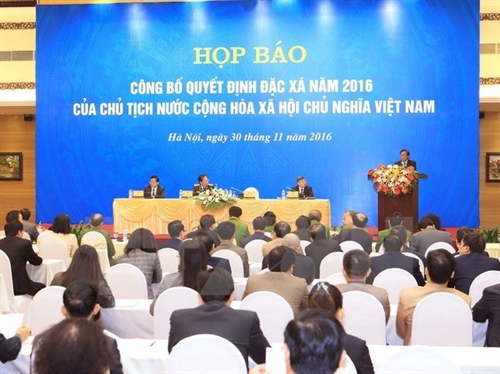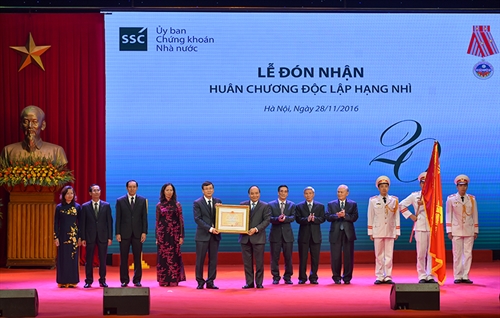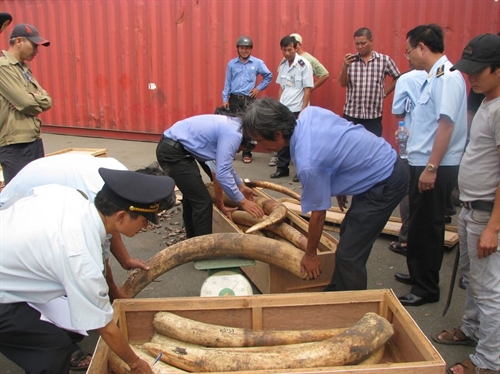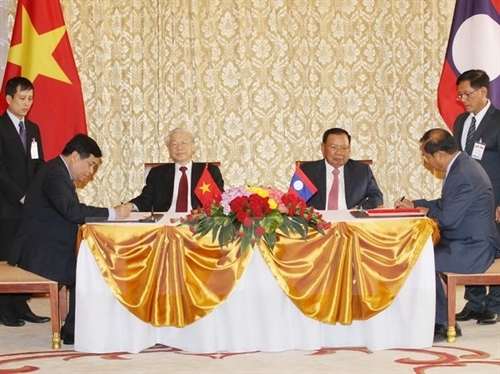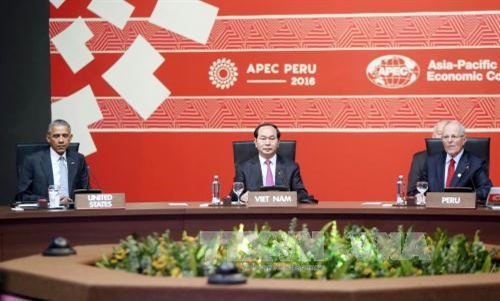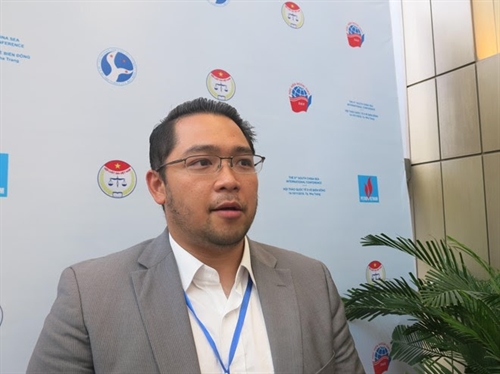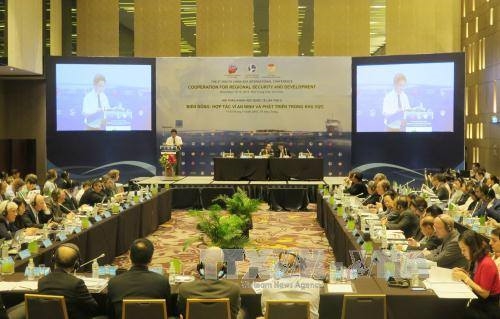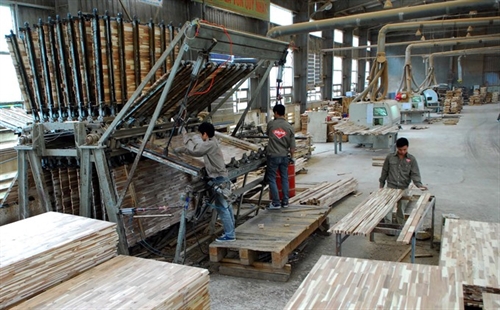The private sector, including foreign direct investment (FDI) firms, plays a crucial role in national development, Prime Minister Nguyen Xuan Phuc said on December 5.
Addressing the 2016 Vietnam Business Forum held in Hanoi, he also said the Government accords equal importance to all sectors and businesses.
“In order for the Vietnamese economy to advance and develop, the private sector must have a strong growth potential as well.”
“The Government holds all businesses, domestic and foreign, in equal regard. And in the foreseeable future, policies and regulations will continue to be updated and re-issued in accordance with international law and market," Phuc said at the forum.
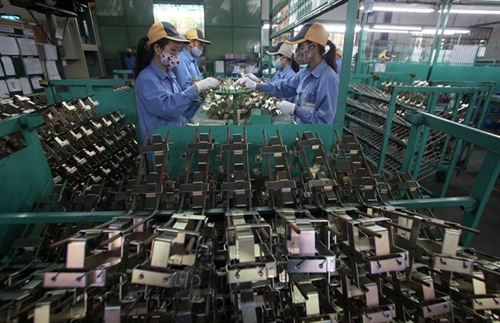 |
| Workers at Cosmos Technology Company, which is specialized in manufacturing motorbike spare parts, in Khai Quang industrial park, Vinh Yen city, Vinh Phuc province__ Photo: Tran Viet/VNA |
The PM welcomed this year’s focus on the role that the private sector has played in economic development over the last 30 years after the nation embarked on its market-oriented renovation policy.
Ryu Hang Ha, Joint Chairman of the Vietnam Business Forum’s Management Board, stressed the need for domestic businesses to improve their relationship with FDI companies based in Vietnam through a common information network. He said this would boost domestic businesses’ inner strengths and drive the economy forward.
In response, Phuc said he hoped that FDI companies, which enjoy technological, financial, marketing and managerial advantages, will commit themselves to concrete actions in working with domestic businesses, helping the grow on the basis of mutual benefit.
The PM urged businesses to propose initiatives and policy suggestions, as well as investment projects according to the environmentally friendly sustainable development goals set by the Government.
A total of 21,000 foreign firms were operating in Vietnam with nearly US$300 billion in capital, he noted, adding that this illustrated the importance and potential of this economic sector as a large revenue generator for Vietnamese economy.
However, the cabinet leader also warned that Vietnam will not welcome investors using the country as a tax haven to launder money, avoid environmental responsibilities, and act against the basic principles and core values of entrepreneurship. Such actions would harm national interests and undermine the goal of sustainable development, not to mention deter other potential foreign investors, he said
Vu Tien Loc, Chairman of the Vietnam Chamber of Commerce and Industry and Co-Chairman of the 2016 Vietnam Business Forum, said many current economic policies were not comprehensive enough, inspection processes were slow and overlapping, and administrative procedures continued to be ambiguous and cumbersome.
These caused a number of difficulties for businesses in accessing credit, land-use rights and created several tax and non-tax barriers, he said.
The PM urged the Vietnamese business community to actively participate in the economic reconstruction process, through diversification of investments, paying particular attention to public-private partnerships (PPP). This would encourage the entrepreneurial spirit, drive innovation, increase competitiveness and product quality, he said.
The Government leader said that the Vietnamese government would continue the task of completing a national legal framework for the market economy, and persist with administrative reforms to create a favorable investment and business environment.
The goal, he said, is to increase national competitiveness and facilitate private sector growth toward meeting the ASEAN4 standards set by the World Bank and World Economic Forum by 2020.
Phuc reiterated his interest in having FDI companies working together with the Government and other domestic businesses, promoting technology transfer, human resource training, sharing of managerial experiences and undertaking responsibility for social and environmental concerns.
He said the Government would also prioritize domestic supporting industries, specially in the small and medium scale sector, to gain access to manufacturing technologies.

